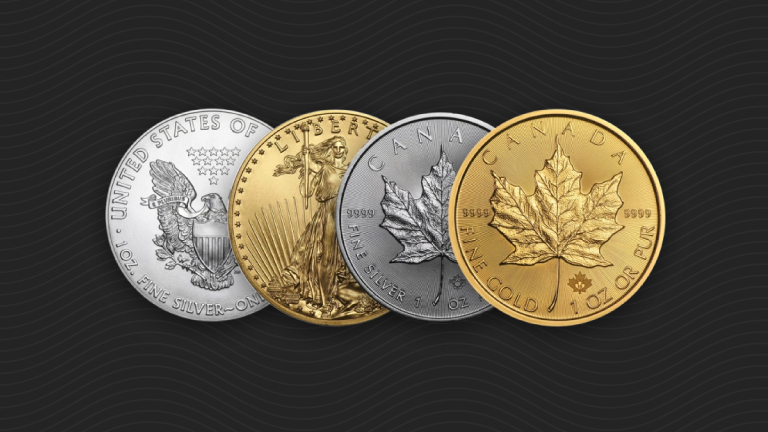Without the Fed, US Is Just Like Greece (Video)
Last night, Peter Schiff told CNBC how he expects the Greek financial crisis to affect United States markets. Peter thinks that the Federal Reserve will come in with another round of quantitative easing to prevent the dollar from rising too much against a struggling euro. Instead, he believes the Puerto Rican debt crisis presents a bigger problem to the US, because it could add significant risk to the municipal bond market and perhaps even breed a greater distrust of Treasuries.
Highlights from the interview:
“I think the Puerto Rican problem is looming a lot larger for the US than what’s happening in Greece. I think the potential for spillover is greater. The irony of it is that Puerto Rico is actually more solvent than the United States. The only difference is the Federal Reserve is monetizing Treasury debt, but not Puerto Rican debt. If we didn’t have the Federal Reserve in our corner, we’d be defaulting too…
“[Stock selling] got started I think because of Greece, but look – we closed on the lows… I think the people actually thinking about what’s going on – if Puerto Rico is going to default on a significant percentage of its municipal debt – a lot of Americans own these bonds. They’re in a lot of funds. There are a lot of other cities in the United States that are also in trouble. People might begin pricing in risk in the muni bond market. That could be a concern. Maybe they’ll start pricing some risk into the Treasury market. It may not be default risk, but there is a lot of currency risk. I’ve always said that if Greece were to leave the eurozone, it would be a positive for the euro. In fact, the action that we had in the currency markets with the big reversal in the euro kind of supports my position here. Now that a Grexit has become more probably, we’re getting strength in the euro and not weakness. That could portend a lot of downside risk for the US dollar, which means people holding a lot of Treasuries around the world see some real currency risk…
“I think the way [Greece] impacts the States is that people recognize there’s not much difference between the United States and Greece. The problem is countries have borrowed too much money. The United States is the leader of that club. One of the reasons Greece was able to borrow so much was because for a while interest rates were artificially low in Greece, because people perceived lending to Greece the way they lend to Germany. It was all one currency, so people didn’t perceive the risk. The same thing happened in Puerto Rico. Puerto Rico had very low interest rates, because of the tax-free nature of their debt in the United States and the fact that so many funds needed higher yield, because yields were so low, so they were dying for Puerto Rican debt. So the Puerto Rican politicians, like the Greek politicians, were eager to promise something for nothing. But politicians all around the world have promised something for nothing, particularly here in the United States. That’s the real contagion about Greece, is that it’s a wake-up call. Lots of countries took on too much debt, and they’re not going to pay it back either…
“Ultimately the downside [to US markets] is going to be muted by the Fed. First of all, the events in Greece, maybe even Puerto Rico, could be the excuse the Fed’s been waiting for in order to not raise interest rates and ultimately launch QE4. But I think more people might start backing up the date by which they think the Fed will raise rates and that will ultimately support the market, as will QE4. But I don’t know if it will cause the market to make a huge run up. I just think it might stop it from crashing, which is what should happen. The US stock market is a gigantic bubble, but I think the Fed is determined to keep inflating it with air. What people need to do is look at the real opportunities in the equity markets outside the United States. Particularly when the US dollar turns, and money flees US Treasuries back into the emerging markets, back into commodities. There are a lot of markets that are going to benefit from the deflation of the dollar bubble…
“You know I’m a long-term bull on China. The biggest problem with China is their monetary policy, because they’re trying to prop-up the US dollar. But long-term you need to be in China, you need to be buying into the market as it comes off. Remember, everybody is talking about the big drop in China, but look at where we rallied before we dropped. We haven’t given back the entire rally. There are other Asian markets people should be looking at… There are a lot of markets other than the United States where there’s much better valuations. But more importantly, you can invest in countries that aren’t broke, that aren’t in debt. In fact, there are countries that are solvent that are actually lending the money that all the other countries can’t repay…”
Get Peter Schiff’s latest gold market analysis – click here – for a free subscription to his exclusive weekly email updates.
Interested in learning more about physical gold and silver?
Call 1-888-GOLD-160 and speak with a Precious Metals Specialist today!

